ZUG, SWITZERLAND – Cryptocurrencies and related-crypto technology have become one of the hottest areas of investment and entrepreneurial activity over the last few years, with billions invested in the sector.
Crypto technology, sometimes called distributed ledger technology or blockchain, could potentially drive efficiencies in existing businesses and create new business opportunities by cutting out middlemen and decentralizing services. Many evangelists liken its game-changing potential to that of the internet.
Despite its decentralizing drive, development of the technology has tended to cluster around certain locations: Silicon Valley, New York, Malta, Gibraltar, Singapore, and Switzerland are all key hubs.
Switzerland is home to “Crypto Valley,” a cluster of companies and foundations in the small town of Zug just outside of Zurich.
Business Insider travelled to Zug last week for the Crypto Valley Conference to find out how the hub developed, how significant it is, and why companies are choosing Switzerland. Here's what we found:
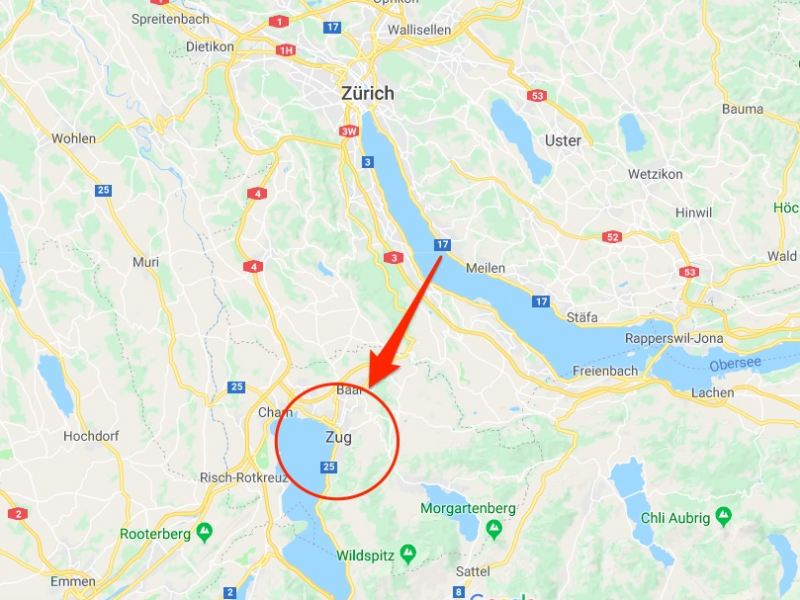
Zug is a small town about an hour outside of Zurich with a population of around 30,000. The city traditionally centred around agriculture and heavy industry but more recently has become a hotspot for pharmaceutical and medical companies. Shire, AstraZeneca, and Johnson & Johnson all have offices here.
Many multinationals are attracted by Zug's low tax. The region - or "Canton" as it's known in Swiss parlance - charges just 14% corporation tax. It's one of the region's many business-friendly policies.

Zug is too small to have its own airport so to get there you have to fly into Zurich and get the train. The trains run right from the airport and depart pretty regularly.
The journey took about an hour but there are quicker trains if you time it right. The views are pretty stunning along the route: lush countryside, clear lakes, and picture-postcard houses lining the valleys.
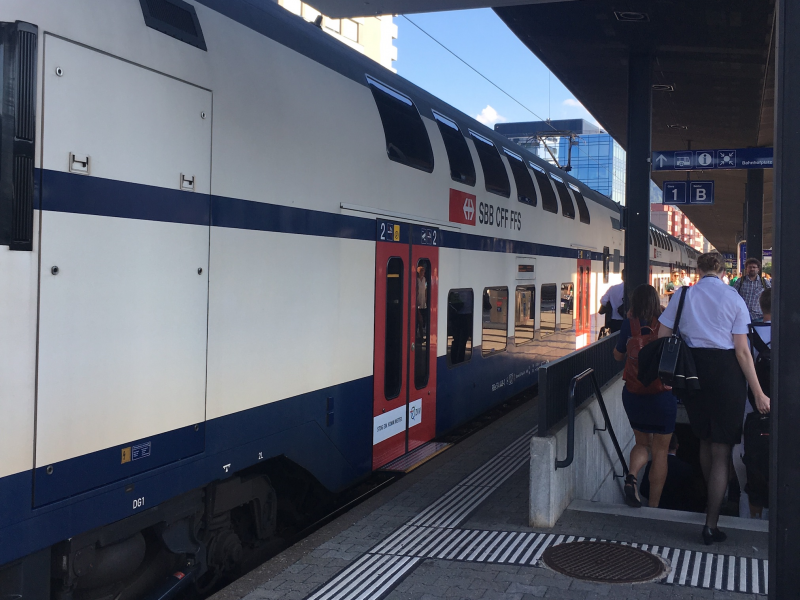
The trains to Zug are double-decker. These tend to be relatively common in central Europe. Here's the train I was travelling on pulled into Zug station.
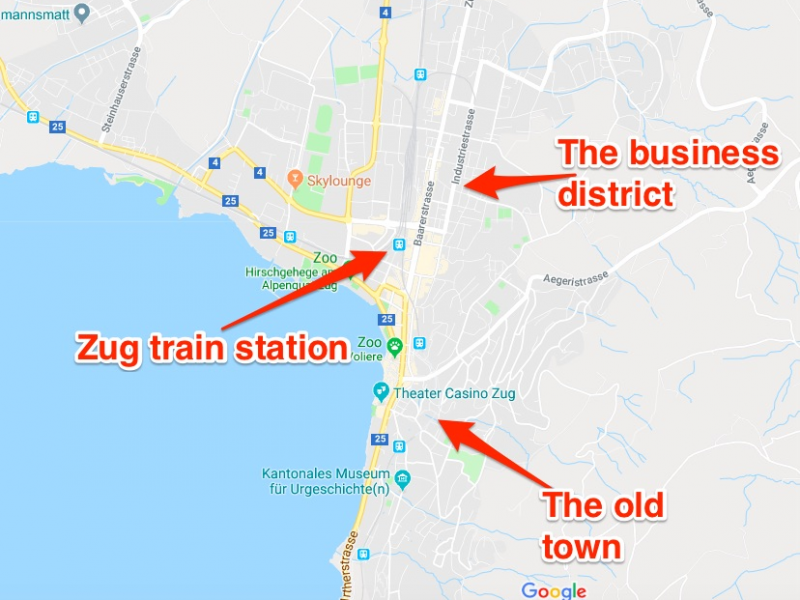
The town itself is very small and largely centred around one road that stretches from the business district in the north to the old town in the south. People have been living in the area since 600 AD, although none of the buildings in the old town are that old.
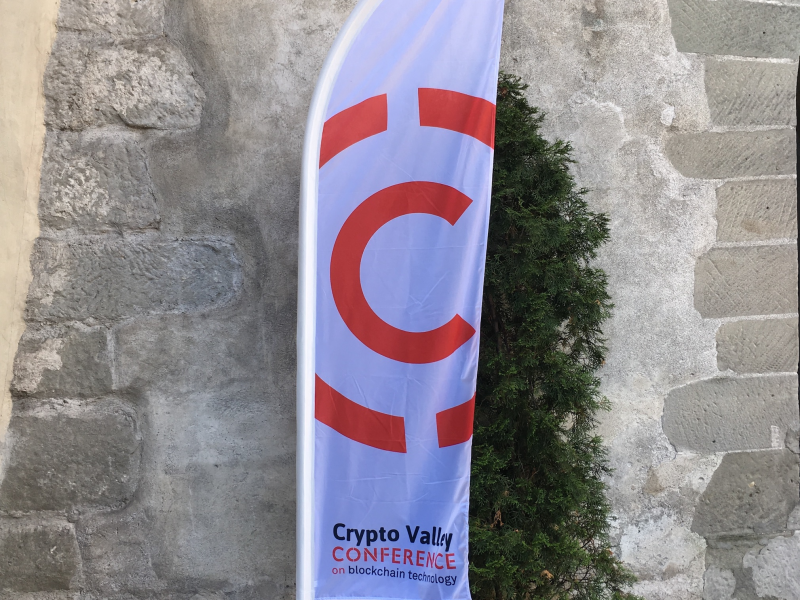
I arrived a day before the conference kicked-off and walked around the town to get a sense of the place. Given the nickname Crypto Valley, I had expected to find shops accepting bitcoin or perhaps even selling crypto merch but it took a while to find any signs of crypto. There were a few flags advertising the upcoming conference but that was about it. Overall, the place felt pretty sleepy.

There was clearly money in the town, though. There were two luxury car dealerships opposite each other on either side of the main road. The sound of high-performance engines punctuated the Swiss calm every so often too as people drove their expensive cars around the town centre.

On the first day I met Jon, the COO of Shapeshift, a cryptocurrency exchange based in the town. (Shapeshift doesn't disclose the second names of any of its employees for fear of phishing attacks.)
Jon said Shapeshift chose to incorporate in Zug back in 2014 because of the clear stance that it took on cryptocurrency.
"We knew that crypto was a very new thing and various regulators might view it in different ways," he said. "We wanted to find an environment where we thought it would generally be friendly. We identified Zug, and Switzerland in general, as a place that was open to this type of innovation in this space and we thought it was a good place to set up shop."
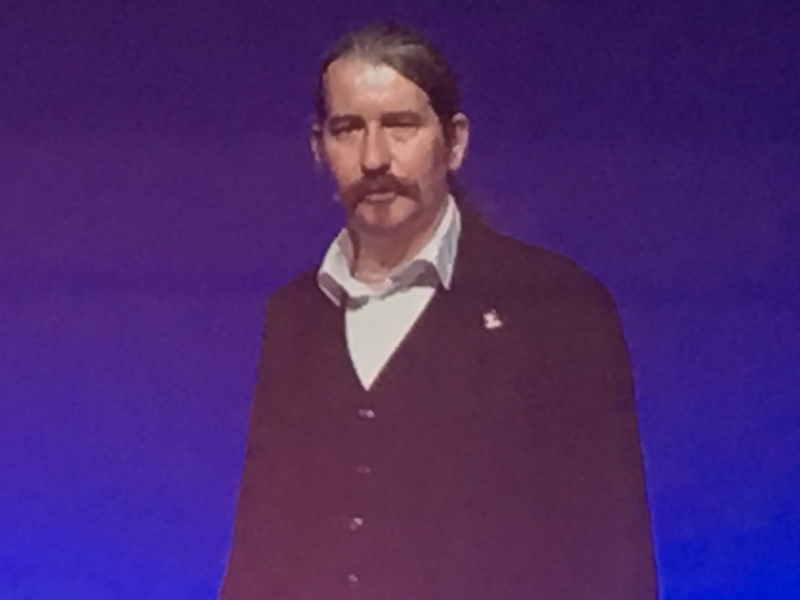
Back in 2014, it was unusual for governments and regulators to open to crypto. Silk Road, the infamous dark web marketplace powered by bitcoin, had only just been shut down by the FBI and crypto exchange MtGox had just collapsed after a catastrophic hack.
Later I learned why Zug was so early to embrace crypto. It was largely because of one man: Nikolas Nikolajsen. Danish-born developer Nikolajsen worked at Credit Suisse in Switzerland before leaving to set up crypto services company Bitcoin Suisse in 2013.
"There were a lot of conversations between the founder [of Bitcoin Suisse] and the government - what is this, what is that?" Bitcoin Suisse CEO Arthur Vayloyan told me. "He was very active in consulting and educating. Many knowledgeable people today know their thing because they were privileged to have [Niklas] as an initiator. He understood."

After discussions with Nikolajsen and others, Zug put in place clear guidance as to how it would treat cryptocurrency companies and those that dealt with the assets.
"I think clarity, in general, is a good thing for the space," Shapeshift's Jon said. "Whatever rules you want to make, at least be clear about them. The Swiss model has generally been pretty good about that."

The new rules helped attract the team behind ethereum, the second biggest cryptocurrency by value, to Zug. The Ethereum Foundation, which promotes and supports the cryptocurrency, is based in Zug and Bitcoin Suisse helped advise the group on its initial coin offering (ICO) in 2014.
"The whole starting point was the Ethereum Foundation," Oliver Bussmann, president of the Crypto Valley Association, told Business Insider. "They decided to set up the foundation here and that triggered the set up of a new ecosystem - law firms, tax, accounting, smart contract evolvement firms, startups, universities."
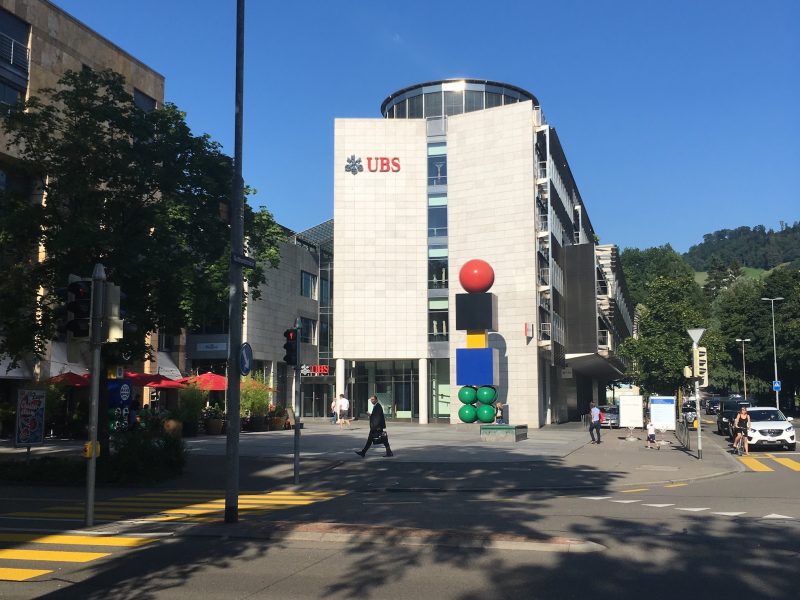
The Crypto Valley Association was set up at the beginning of 2017 to coordinate all these interested parties.
"There were a lot of informal meet-ups and they had the name already crypto valley," said Bussmann, who was formerly UBS' CIO. As well as being a reference to Silicon Valley, Zug actually is in a valley, surrounded by mountains.
Bussmann said: "We are a global leading ecosystem for blockchain technology. To establish that you have to work on all dimensions: startups, investors, governments, corporations, R&D etc. You have to bring them together."

Today, over 400 companies with a presence in Zug are members of the association. They range from startups to "Big Four" accountant KPMG. Bussmann says last year's ICO boom supercharged the organisation.
"This country is really good from an innovation perspective," he said. "But there are not enough VC companies here locally. The government was always thinking about providing a fund, something like that. But now with the ICO, we have access to a global capital market."
ICOs allow startups to sell digital crypto tokens to investors globally through the internet. 2017 saw an explosion in ICO activity and over $9 billion has been raised through ICOs so far this year alone.
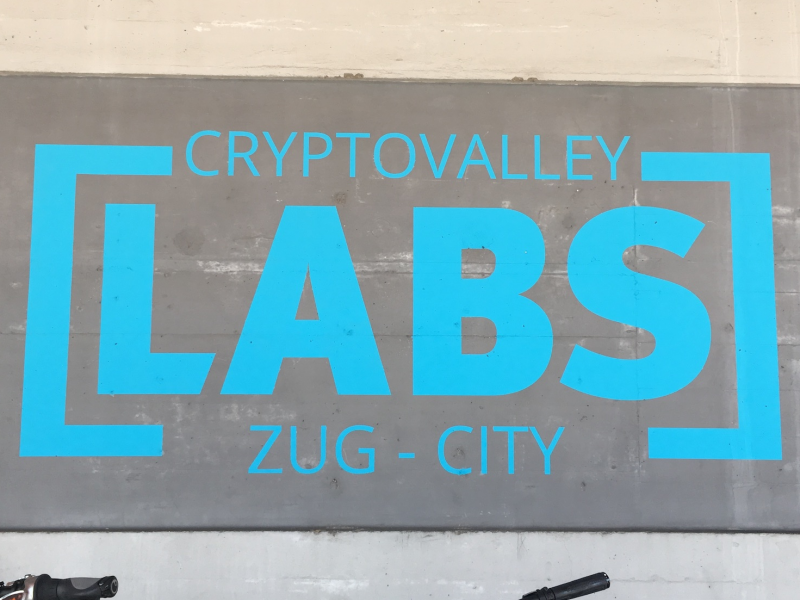
I visited the Crypto Valley Labs on the afternoon of my first day. The Labs are a coworking space for startups, set over two floors in a building in the business district. Jon and the Shapeshift team were huddled in the garden attached to the building when I visited.
Labs was founded at the start of 2018 and already has over 40 paying members. Many use the space as a place to work when they're in town rather than being based there full-time. The space has been such a success that it is expanding to take up two more floors later this year.
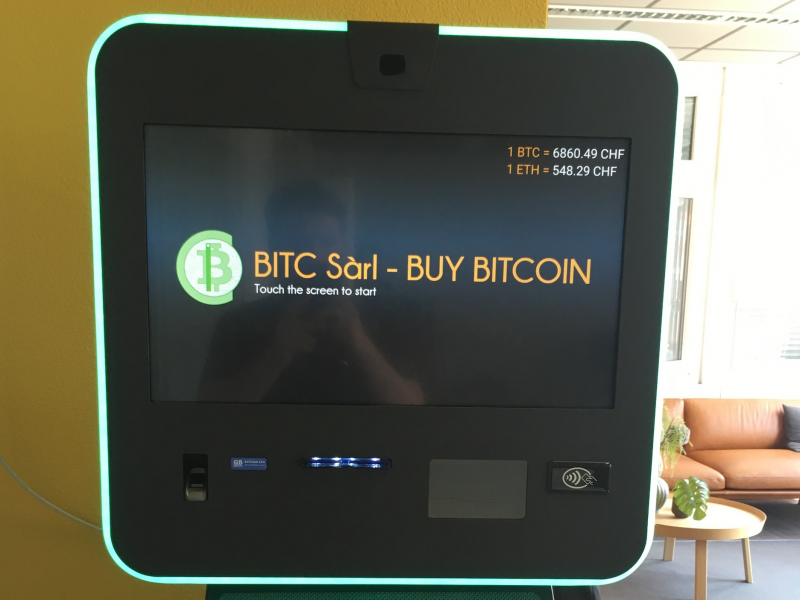
There was a bitcoin ATM in the cafe area of Crypto Valley Labs. As part of its crypto-friendly stance, Zug has begun accepting bitcoin as a form of payment for certain municipal services, although not taxes. The city is also experimenting with allowing municipal voting using blockchain, the technology that underpins bitcoin.

The conference held a drinks event for attendees on the first night at the Sky Lounge, a bar that overlooked the town. Around 80 people gathering first downstairs outside then heading to the bar. I chatted to an Oxford Professor looking at using blockchain to track social impact, a Swiss CEO whose company makes secure storage tech for crypto, and someone who advised people on ICOs, among others. Everyone was chatty and excited.

Waiting for the elevator on the way out an ethical hacker stopped to congratulate two guys in their early 20s standing next to me.
"My staff love you guys, they've got your stickers," the hacker said.
Down at ground level, I asked what the pair were working on. They were the cofounders of Aragon, a crypto-based platform to build decentralized organisations on top of. They couldn't stay to chat - one had to find his Uber nearby, while the other left on a skateboard.

The conference began the next day. Consensus in New York is the biggest and best-known crypto conference and this year's event generated headlines of fake banker protests, rented Lamborghinis, and raucous after parties.
The Crypto Valley Conference was held at Zug's Theatre and Casino and I was hoping there would be similar stories - the crypto casino! - but the conference was a sober and serious affair by comparison.
The Institute of Electrical and Electronics Engineers (IEEE) certified the event and, as such, it was much more academic than other crypto conferences. Attendees were genuinely passionate about the technology and its potential, rather than simply seeing it as a money-making opportunity.

The Mayor of Zug, a representative of the government's economy department, and a Swiss federal councillor all spoke on the first day, underlining the level of political support for the industry.
"The city of Zug, they see this as fantastic brand building," Bussmann said. "Now we have regular strategic meetings with the canton of Zug. It's a new business."
Luis Cuende, one of the cofounders of Aragon I had seen the night before, appeared on a panel alongside a representative from the Swiss central bank. The moderator joked that it was the first event he had done where one person was in shorts and another in a tie. You can probably guess who was wearing what.

The two-day conference covered everything from more energy efficient methods of certifying cryptocurrency transactions to how the technology could apply to the internet of things, how the legal world is dealing with the new sector, and how high-frequency trading could impact crypto.
Aragon, Bitcoin Suisse, and Shapeshift all had booths at the conference, as did Melonport, another notable crypto company based in Zug. Melonport was founded by a former Goldman Sachs banker and is building a blockchain-based asset management system.

The first day of the conference ended with a boat trip on Lake Zug for all the attendees. If there was going to be any crypto raucousness, surely this is where it would happen. But the crowd were as well behaved after hours as they were at the main event. Groups talked about the beauty of bitcoin as an idea, its business applications, and continued to crunch through thorny development problems.

Zug had been in the headlines that week after a long Wired article about issues at troubled crypto startup Tezos, which was based in Zug. Most people just dismissed it as a freakish and unusual tragedy in the space rather than anything that should reflect on Zug.
"I think that has much more to do with the specific people involved than it does the space or even Zug itself," Shapeshift's Jon told me. "I think that's just kind of coincidental."

Shapeshift's Jon was full of praise for the regulators and governments in Switzerland for helping to foster the sector.
"I would love to see the Swiss model replicated elsewhere," he said.
Bitcoin Suisse's Vayloyan said: "Zug is definitely a great place to do business because you have this network, you have the government who supports it. You sense it, you sense that there is support in the crypto sphere. They are playing it very well."

"There is really a feeling that there is a lot of innovation happening right here in Zug and with companies in Zug," Shapeshift's Jon had told me. "Ever since we set up here, more and more companies are coming here because they see it as a friendly place to do business."
Heinrich Zetlmayer, a general partner at Zurich-based Blockchain Valley Ventures, told me: "I am just very impressed by the quality of some of the startups here and the dynamic here. There are so many what I would call industrial blockchain startups here - it keeps us very busy."

"It is in reality not just about legislation and taxes," Zetlmayer said. "It's a good place to be that makes your startup faster. What was Silicon Valley before you know? That had all the ingredients and 'voom' things were running faster.
"Here in Zug, we are all very quick talking to each other. And it is big enough that there is a critical mass. We somehow have a lot of things going for us. It makes it a unique place."

Bussmann is so pleased with the success of Crypto Valley in Zug that he is now talking about marketing Switzerland as a "crypto nation." The association already has some members even beyond the countries borders in Milan.
"We have about 15 requests per day for startup coaching, investor tours, government ambassadors want to talk to us, regulators are calling because we have these frameworks," he said.

